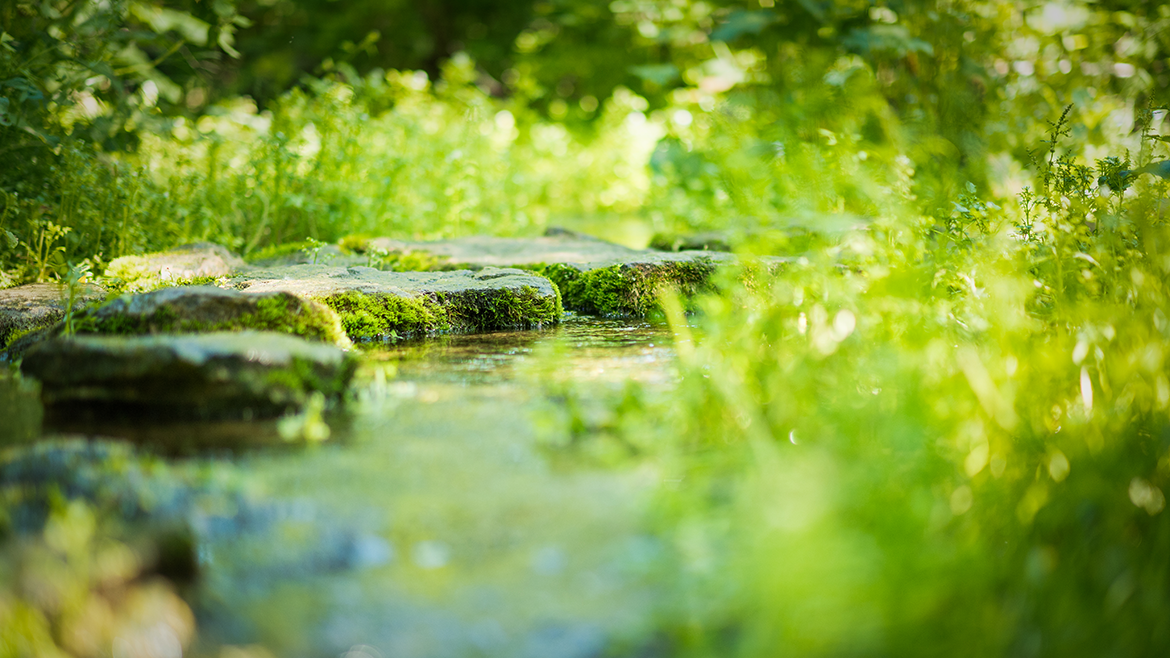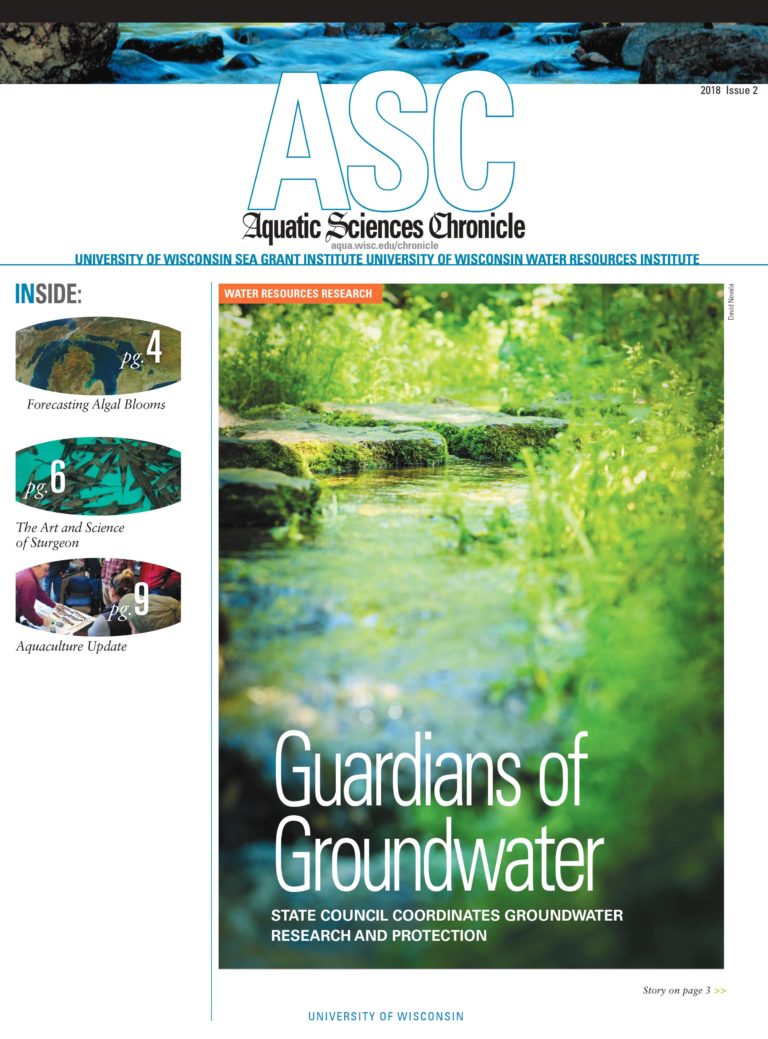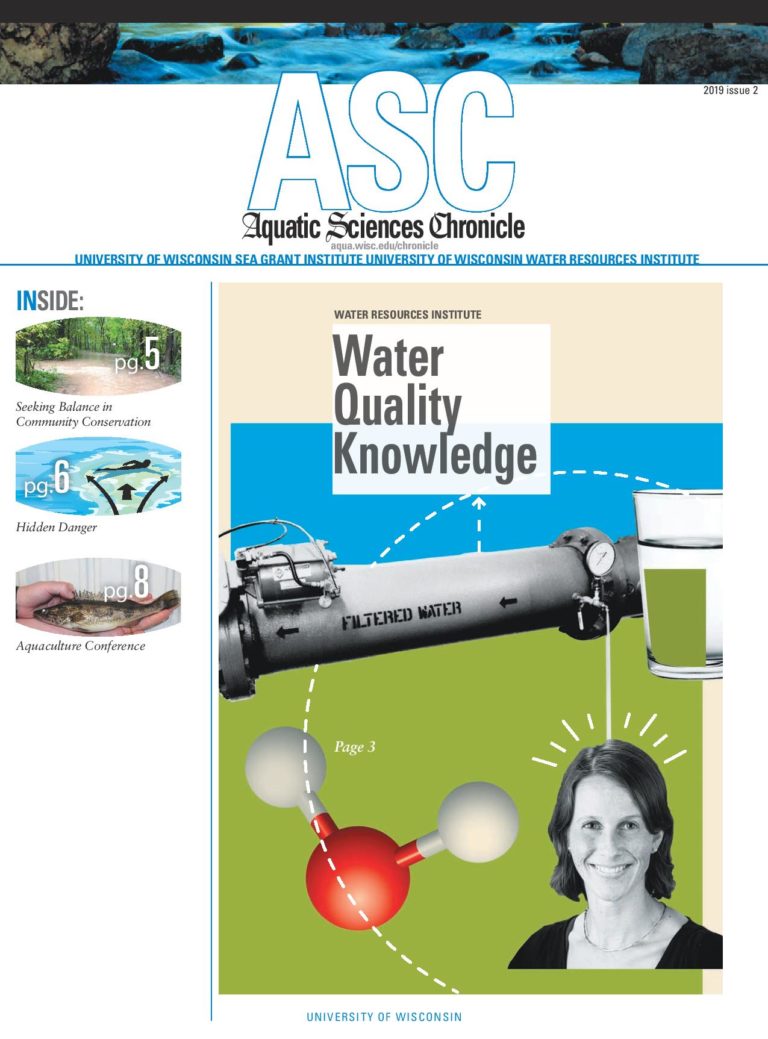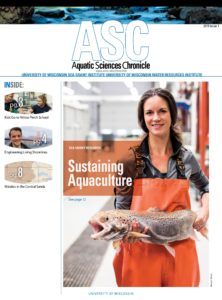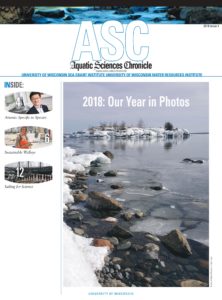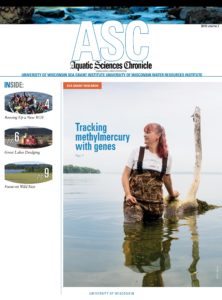ASC Chronicle 2018 Vol2
COVER STORY
WATER RESOURCES RESEARCH
GUARDIANS OF GROUNDWATER
Wisconsin is one of only three states in the U.S. that coordinates its groundwater research and monitoring through a special council. Since 1984, the Groundwater Coordinating Council (GCC) has fostered the exchange of information about groundwater programs among state agencies and promoted efficiencies to benefit this subterranean resource.
Read more
SEA GRAND RESEARCH
SEEKING REAL-TIME, EARLY-WARNING DEVICE FOR HARMFUL ALGAL BLOOMS
Miller and Smith are aiming for a different niche. “What we are trying to do is, No. 1, make a device that is open source and affordable,” Miller said. “No. 2, we want some universality to it. What I mean by that is that it’s not just a device that can detect this one toxin but that you could easily adapt to a new chemical, whether that be a marine toxin or whether that be, for example, an oil chemical or a fuel chemical you want to monitor in the Gulf of Mexico.”
Read more
Featured Podcast & Web
Sea Grant Advisory Council Welcomes Two New Members
Wisconsin Water Library
Reading About ROVs (Remotely Operated Vehicles)
Outreach
Tap Talks at Central Waters Brewery Tap Into Thirst for Science LearningSea Grant Helps City Clean Up Its Zoning Code "Monster"
UWSP NADF: Advancing Aquaculture Education and Outreach
Program and People
Clean Marina Program Gets a Boatload of Grant Money
Education
The Art and Science of Sturgeon
ASC Chronicle 2018 Vol 2
COVER STORY
WATER RESOURCES INSTITUTE
Guardians of Groundwater
Wisconsin is one of only three states in the U.S. that coordinates its groundwater research and monitoring through a special council. Since 1984, the Groundwater Coordinating Council (GCC) has fostered the exchange of information about groundwater programs among state agencies and promoted efficiencies to benefit this subterranean resource.
SEA GRANT RESEARCH
Seeking Real-time, Early-Warning Device for Harmful Algal Blooms
Miller and Smith are aiming for a different niche. “What we are trying to do is, No. 1, make a device that is open source and affordable,” Miller said. “No. 2, we want some universality to it. What I mean by that is that it’s not just a device that can detect this one toxin but that you could easily adapt to a new chemical, whether that be a marine toxin or whether that be, for example, an oil chemical or a fuel chemical you want to monitor in the Gulf of Mexico.”
Featured Podcast & Web
![]() Sea Grant Advisory Council Welcomes Two New Members
Sea Grant Advisory Council Welcomes Two New Members
Wisconsin Water Library
![]() Reading About ROVs (Remotely Operated Vehicles)
Reading About ROVs (Remotely Operated Vehicles)
Education
![]() The Art and Science of Sturgeon
The Art and Science of Sturgeon
Program and People News
![]() Clean Marina Program Gets a Boatload of Grant Money
Clean Marina Program Gets a Boatload of Grant Money
Outreach
![]() Tap Talks at Central Waters Brewery Tap Into Thirst for Science Learning
Tap Talks at Central Waters Brewery Tap Into Thirst for Science Learning![]() Sea Grant Helps City Clean Up Its Zoning Code “Monster”
Sea Grant Helps City Clean Up Its Zoning Code “Monster”![]() UWSP NADF: Advancing Aquaculture Education and Outreach
UWSP NADF: Advancing Aquaculture Education and Outreach![]() Aquatic Invaders? There’s a Plan for That
Aquatic Invaders? There’s a Plan for That![]() Listen to the People of the Sturgeon
Listen to the People of the Sturgeon![]() Teacher Development Program Adds Focus on Inclusivity
Teacher Development Program Adds Focus on Inclusivity


